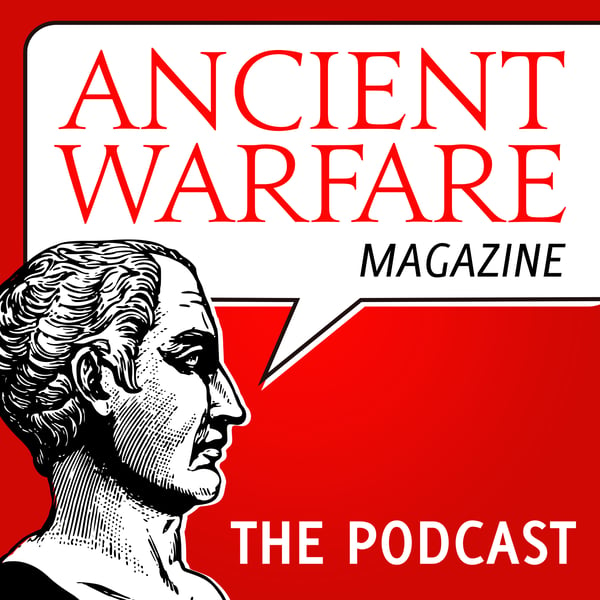AW141 - Visualising War
Ancient Warfare Podcast
The History Network
4.4 • 631 Ratings
🗓️ 12 March 2021
⏱️ 53 minutes
🧾️ Download transcript
Summary
In this episode, Jasper and Murray are joined by Dr Nicolas Wiater and Dr Alice König who lead the Visualising War project at St Andrews University.
"War is a topic of perennial importance to people from all sectors of all societies, and battle narratives play a major role – in many different forms – in shaping and mediating responses to war. Think of Homer’s Iliad, the histories of Livy, the Bayeux Tapestry, Shakespeare’s history plays, Tolstoy’s War and Peace, Picasso’s Guernica, Shostakovich’s Stalingrad Symphony and Francis Ford Coppola’s Apocalypse Now – to name just a few. At first glance these representations of battle are all strikingly different. Whether we are conscious of it or not, however, they have long been interacting with each other – in different ways, and to different extents – in artists’, authors’, viewers’ and listeners’ minds, adjusting the ways in which war is visualised and canonising broader ideas about (e.g.) gender, leadership, ‘success’ and sacrifice’.
The aim of the project is to foreground these interactions and explore their impacts. In a nutshell, we ask: how do battles narratives from different media, communities and historical periods both shape and differentiate themselves from each other? How do their interactions reflect and shape broader attitudes to war? And how do the attitudes and ideologies which they generate influence the ways in which people think, feel and behave in their day-to-day lives?"
Transcript
Click on a timestamp to play from that location
| 0:00.0 | Hello and welcome to another episode of the ancient warfare podcast. With me tonight is |
| 0:05.0 | Mary Dame and myself, Jasper Orthaus. And the rest of the team we've given a day off because |
| 0:11.6 | they've had a hard year and we thought they, no, not really. We have special guests today. |
| 0:17.7 | Nicholas Viata and Alice Koenig, doctors both at St. Andrews University, and they're |
| 0:24.6 | working on a project called Visualizing War, which we'd like to talk about to them tonight, |
| 0:30.6 | because we're curious what it entails. And I think it has a lot of implications for how we might look at our sources and how we visualize, portray ancient warfare in the magazine. |
| 0:44.3 | And because visualizing is a good topic to discuss on an audio medium. |
| 0:49.3 | We thought we do that tonight. |
| 0:51.3 | So perhaps, Alice, could you sort of tell us what it means? |
| 0:57.5 | What really are, what's the questions that you are asking? |
| 1:01.0 | What are you trying to describe in this project? |
| 1:03.2 | So the term visualizing is, |
| 1:07.5 | it's not suggesting that the project is all about pictures and art and the sort of the visual image. |
| 1:15.2 | In a nutshell, what we're really interested in is the way in which people picture war in their imagination |
| 1:21.0 | and the shared discourses of war that circulate in different communities. |
| 1:25.7 | So essentially we're excavating the habits we all have |
| 1:29.5 | of visualising, imagining, talking about and representing war. And as part of that, what we're |
| 1:36.3 | looking at is the role played by war stories, so narratives of war, battle narratives and all sorts of |
| 1:40.9 | other kinds of narratives, in really shaping those pictures, shaping the discourses of war, and ultimately shaping people's mindsets and behaviours. So we're really |
| 1:50.7 | interested in the feedback loop between narrative and reality, the way in which stories reflect |
| 1:55.8 | what's gone on, what's, you know, what's happened in a battle or what's been going on in a war, |
| 2:00.7 | but also |
... |
Please login to see the full transcript.
Disclaimer: The podcast and artwork embedded on this page are from The History Network, and are the property of its owner and not affiliated with or endorsed by Tapesearch.
Generated transcripts are the property of The History Network and are distributed freely under the Fair Use doctrine. Transcripts generated by Tapesearch are not guaranteed to be accurate.
Copyright © Tapesearch 2025.

